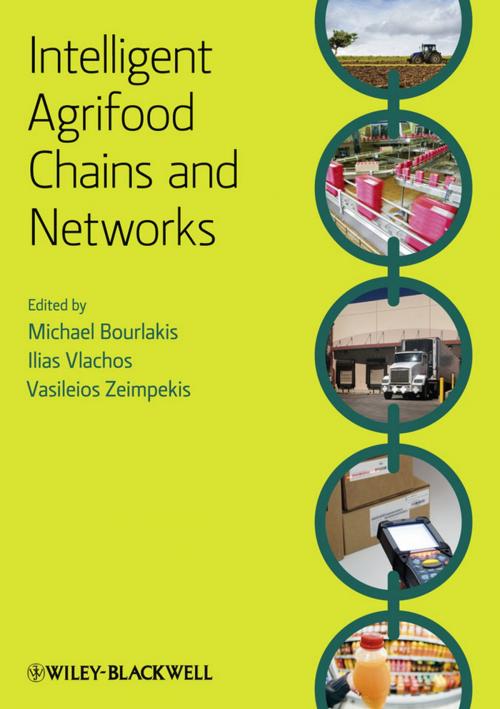Intelligent Agrifood Chains and Networks
Nonfiction, Science & Nature, Technology, Food Industry & Science| Author: | ISBN: | 9781444339888 | |
| Publisher: | Wiley | Publication: | February 25, 2011 |
| Imprint: | Wiley-Blackwell | Language: | English |
| Author: | |
| ISBN: | 9781444339888 |
| Publisher: | Wiley |
| Publication: | February 25, 2011 |
| Imprint: | Wiley-Blackwell |
| Language: | English |
Food has a fundamental position in society, ensuring health, happiness and political stability. Consequently, the management of food chains and networks is one of the most important aspects of the modern food industry. Yet food is difficult to handle along long supply chains, with a limited window for storage and handling time, and the risk of spoiling if incorrectly handled or processed. These issues can lead to logistical problems that can severely affect product quality and freshness.
Intelligent Agrifood Chains and Networks offers a timely discussion of the current state of food logistics, and indicates the major ICT problems that can occur during production, warehousing, transportation and retailing. Emphasis is given to new technologies and intelligent systems that are able to process time-dependent information, handle emergencies, and support logistics operations in food management. In particular, the authors show how telematics and RFID can be implemented in the supply chain. The book also includes real-life case studies, in which actual food logistics problems and their solutions are presented, demonstrating how systemic and logistics approaches may be combined.
The book is directed at academics, researchers, and students seeking the necessary background in terms of the interplay between the food supply chain and ICT. Its comprehensive review of current issues in the food supply chain will be of interest to managers and technicians working in the food industry, while its technological focus will be invaluable to food scientists and technologists working in research and industry environments.
Food has a fundamental position in society, ensuring health, happiness and political stability. Consequently, the management of food chains and networks is one of the most important aspects of the modern food industry. Yet food is difficult to handle along long supply chains, with a limited window for storage and handling time, and the risk of spoiling if incorrectly handled or processed. These issues can lead to logistical problems that can severely affect product quality and freshness.
Intelligent Agrifood Chains and Networks offers a timely discussion of the current state of food logistics, and indicates the major ICT problems that can occur during production, warehousing, transportation and retailing. Emphasis is given to new technologies and intelligent systems that are able to process time-dependent information, handle emergencies, and support logistics operations in food management. In particular, the authors show how telematics and RFID can be implemented in the supply chain. The book also includes real-life case studies, in which actual food logistics problems and their solutions are presented, demonstrating how systemic and logistics approaches may be combined.
The book is directed at academics, researchers, and students seeking the necessary background in terms of the interplay between the food supply chain and ICT. Its comprehensive review of current issues in the food supply chain will be of interest to managers and technicians working in the food industry, while its technological focus will be invaluable to food scientists and technologists working in research and industry environments.















